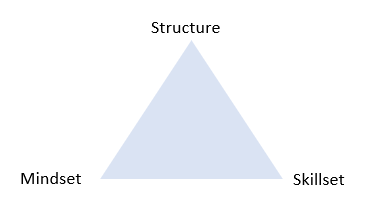This year I moved to Waiheke Island from Wellington. It’s been quite a shift in environment, especially the summer climate. It’s exactly why I moved here but it’s made me realise the importance of environment and I’m not just talking about being warm and near the beach.
I grew tomatoes in Wellington. They took about 3 months, it was a slow process and I’d maybe get one a week when they fruited. This process involved bringing them inside to shelter from the wind on certain days or watching them snap in the gusts. The process here is quite different. It’s more about watering them daily and reaping bountiful harvests of boxes of fruit most weeks!
Our surroundings impact on how we perform. For plants this is obviously about climate but we’re no different. Our work climates are made up of the culture we exist in, the people we work with and how much autonomy we’re given to do our job. It includes how well we look after ourselves and the environment we create at home. Are our weekends full of calm and rest to enable a recharge? Are we organised and know where everything is? What about our desk or our filing system? All of this creates our environment and either helps us grow or not just like the tomatoes.
So we know what creates our environment but what leads to us doing or not doing these things. Why do some people have an environment more conductive to success and others one that makes it harder for them like tomatoes growing in Wellington?
This is down to our habits. It’s a series of good habits that produce an environment for success.
‘We are what we repeatedly do. Excellence therefore is not an act but a habit’ – Aristotle
Often the difference between those who succeed and those who do not is the habits they form. This is how we hit peak performance – forming good habits and breaking bad ones.
All Blacks mental skills coach, Gilbert Enoka, talks about this in relating his experience of coaching rugby players. There’s a combination of mindset and skillset he says is crucial for success, but there’s also a third, equally important point: structure. Together, mindset, skillset and structure make up Enoka’s success triangle.
He’s witnessed players who have the necessary skills and mindset still fail to make the team because of a lack of structure. If they can’t adhere to the necessary routine of training, early nights, meal plans and habits, they will inevitably not succeed.
Forming good habits sounds simple, but, of course, it’s not. Otherwise, we’d all go to the gym, eat salad all the time and wake up at 6 am every day. Even when we know the negative impacts of a certain habit, it can be hard to break.
So what are your habits and how are they creating your environment? What needs to change and how can you form some better structure around your day or your week. This might be getting up earlier, blocking out time in your diary for planning or booking in time for exercise during the day.
Find out more about the power of structure and how to be your best om the new book, Burnout to Brilliance


